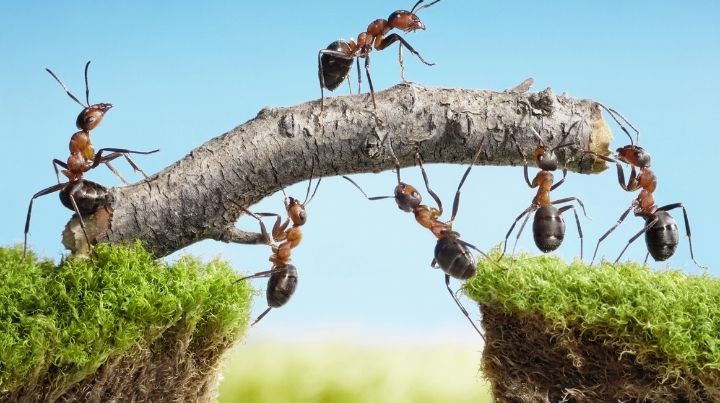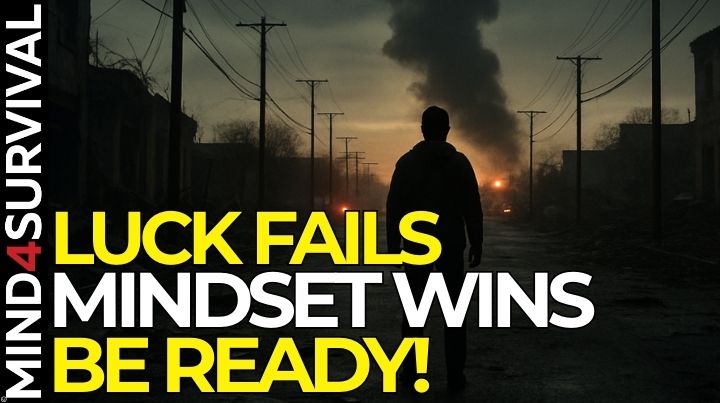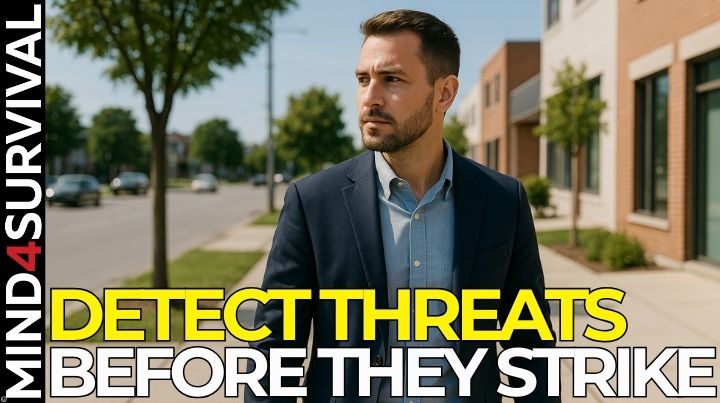107: Prepping Groups or Going It Alone – Which Is Best?


Podcast: Play in new window | Download
Prepping groups or going it alone? That's always a raging debate in the preparedness world, much like the “best gun,” where you should live, and whether to bug out or bug in.
While the first Rambo was a great movie, it set a bad precedent for many people in the preparedness niche who now feel they can go it alone during a disaster or other difficult times.
Since I first began prepping back in the ‘80s, there is always talk of people going solo during difficult times, while others swear by having prepping groups. Well, we're in a difficult time right now, and how does the idea of being completely on your own, reliant just on yourself, feel? While living like John Rambo in the woods of Washington may seem doable on the big screen, is it really? And it is smart?
Most People are Not John Rambo, Even If They Think They Are
Most people are not John Rambo, and those who are even close would probably tell you it's not a good idea.
But people who know less are often the ones who are most apt to make this lone-wolf survival ideal the basis of their plan. Part of this is something called the Dunning-Krueger Effect. Psychology Concepts website defines it:
The Dunning Kruger effect is a cognitive bias in which individuals, who are unskilled at a particular task, believe themselves to possess above-average ability in performing the task.
Let me know if you're a professional that is ready to go out and do everything solo. You have it one hundred percent wired. You can live out of your backpack for the rest of eternity and do your own thing. I imagine not many hands went up. And if your hands did go up, well, man, please call me because I'd love to have you on the podcast because you must be the tactical solo survival genius out there who can do it forever.
The truth is most people don't have the mindset, don't have the capabilities, the skills, and knowledge to go solo for really long periods of time. You're going to have to interact with people because we need that support, and that's just one reason why prepping groups are so important.
Even most movies show that going it alone is difficult, if not impossible.
In the movie “Cast Away,” how ready was Wilson to help Tom Hanks? Daily survival needs never stop. Did he help him get water? Did he help him start a fire? What did he help did? No, he was a do with a handprint on. It was a ball with a handprint on him that Tom Hanks used to have somebody to talk to and break the social isolation he was dealing with. And other than that psychological effect, Wilson was absolutely worthless for helping Tom Hanks, his character, do anything right.
The movie “Leave No Trace” shows how it's not hard to get hurt or sick, yet if you're solo, it may be hard to get help. It really shows how you are so vulnerable to what goes on out in nature when you're on your own. So I recommend watching, Leave No Trace, and you can see what happens when you're solo.
“Alone” shows professionals had a difficult time. These are trained professionals on there, Alan Kay and everybody else that was on there knows what they're doing in the woods, and they still have a difficult time.
Prepping Groups Help Us Survive
Those who are a part of prepping groups have a higher chance of survival.
Eyes in the back of your head or when sleeping? None of us can be locked in one hundred percent of the time watching everything, too, and everything around us. It's impossible to do that. You will wear out if you're on your own, and you're trying to be hyper-vigilant and watch everything going around you. It would be best if you had a team for that.
We cannot control what happens in nature. Trees fall, sometimes on us. Storms happen, damaging our structures or causing extreme temperatures. We get sick or injured. But no matter what is happening, our food, water, and shelter needs still have to be met.
Selco, who survived the atrocities in a city under siege during the Balkan War, writes that it's tough to go it alone if you want to survive. Prepping groups are there for you when something goes wrong that takes you out of the game.
Prepping Groups Reduce Social Isolation
The problems associated with being the lone wolf or solo survivalist have to do with just that, being alone and lacking help, support, and companionship.
Isolation in prison isn't a thing because it's good for the person in isolation. And, at least they have their meals brought to them. Isolation can cause serious mental health effects, according to Medical News Today.
A large body of research shows that solitary confinement causes adverse psychological effects and increases the risk of serious harm to individuals who experience it. According to an article in the Journal of the American Academy of Psychiatry and the Law, isolation can be as distressing as physical torture.
The BJS report that approximately 25% of people in prison and 35% of those in jail who had spent 30 days or longer in solitary confinement during the previous year had symptoms of serious psychological distress. The rates were similar for those who only spent 1 day in isolation.
Humans require social contact. Over time, the stress of being isolated can cause a range of mental health problems
According to Mayo Clinic, social isolation and loneliness are associated with a greater risk of poor mental health and poor cardiovascular health, as well as other health problems.
According to ScienceAlert.com, they're also more likely to feel depressed and may have problems processing information. This, in turn, can lead to difficulties with decision-making and memory storage and recall. Lonely people are also more susceptible to illness. Researchers found that a lonely person's immune system responds differently to fighting viruses, making them more likely to develop an illness.
Some People DO Thrive on Being Alone
On the other hand, some people who have faced the challenge of being alone for an extended period of time may show personal growth – including emotional growth, feeling closer to family and friends, and having a better perspective on life – as a result of their experience.
Some people experience a greater appreciation for people and life, better attention and focus, and overall feeling happier than before upon coming out of isolation. Your mental preparedness has a lot to do with how you handle a situation like that.
Good Prepping Groups Have These Qualities
The following points are common among successful prepping groups.
- Build trust and respect. Nurture a team-oriented environment based on trust and respect, without which there will only be limited success.
- Be true to your word. If you demand high productivity and quality work, you'd better be as good as your word. You get what you give. If you promise to do something, be sure you will fulfill it. When team members notice that you are a reliable person, they will emulate your behavior.
- Create an environment that supports team bonding. If you want to improve teamwork, help people get to know each other better. Organize in-person get-togethers as often as is realistically possible.
Dealing with Misunderstandings in Prepping Groups
There are no teams exempt from occasional misunderstandings. Somewhere, somehow, the conflict will show up. When a confrontation between people gets out of hand, it must be dealt with. If it's dealt with properly, a conflict can help make the group stronger.
Don't complicate the situation by deciding what is good or bad. Listen to all sides carefully and then talk to others who may provide insight. Brainstorming solutions favorable for both sides may even result in ideas that would never have come to mind without the conflict.
This doesn't mean that confrontations are good. It just means that they make people think about two points of view of the matter. More points of view mean more possibilities.
Adding New People to Prepping Groups
If you want to bring a new person in, talk it over with your current team. Set up opportunities for everyone to get to know one another. Remember, when it comes to preparedness, experience, skills, and qualifications are important. And although everyone wants a doctor or a soldier in the group, the most important qualities for the team are always personality and social skills that align with your values. Just looking to add people into your circle of trust based on skills can totally upend the apple cart. Not everyone with a good resume is a good fit!
Concerning the trust and respect we talked about earlier, it's our personalities and ability to work together through good times and bad that are most important. The ability to communicate within the team effectively is what makes the team great.
The Bottom Line on Prepping Groups
Is it absolutely impossible for the lone wolf to survive? No – there are a few uniquely skilled people who may be able to manage on their own. But for most of us, prepping groups are a far more effective way of surviving a crisis – and a lot better for us mentally.
What are your thoughts on prepping groups vs. going it alone? Do you have any ideas for helping others connect with like-minded people? Please leave a comment below.
Additional Resources:
Stay safe,

Related Articles
FREE Guide
Read the Best Seller
Join Mind4Survival
Stay informed by joining the Mind4Survival! 100% Secure! 0% Spam!
Affiliate Disclosure...
Mind4Survival is a free, reader supported information resource. If you make a purchase through our link, we may, at no cost to your, receive an affiliate commission.
Do You Want To Be Ready No Matter What?

Download our free 39-page guide with interactive, 7-Day Emergency Kit Checklist and take the first step toward real preparedness.
- Know exactly where to start.
- Save time and money.
- How-to build a complete Basic Emergency Kit.
- Level up your safety and security.
Join Mind4Survival
Stay informed by joining the Mind4Survival! 100% Secure! 0% Spam!





